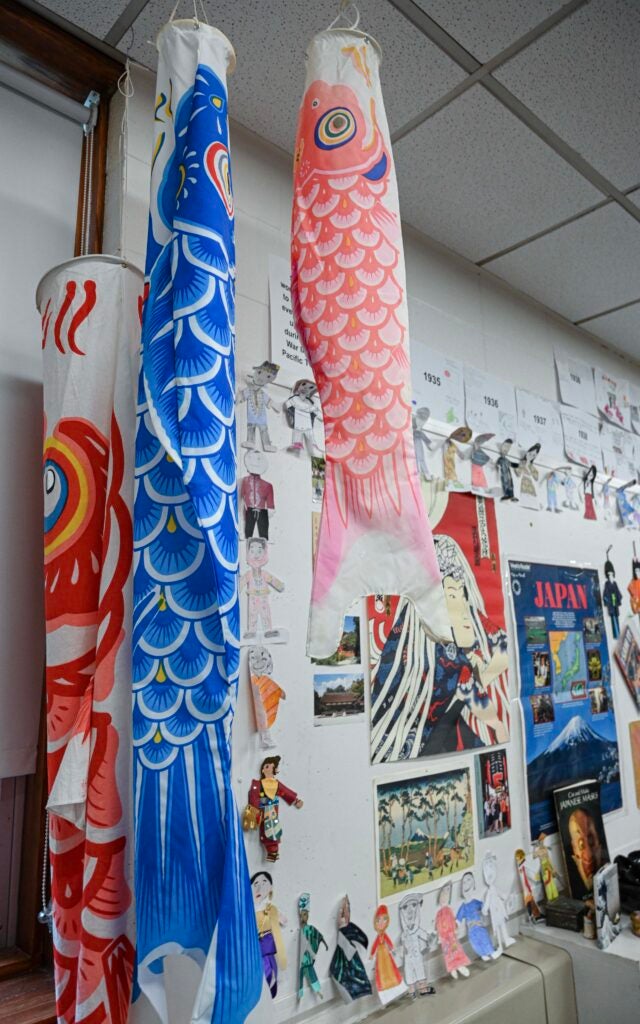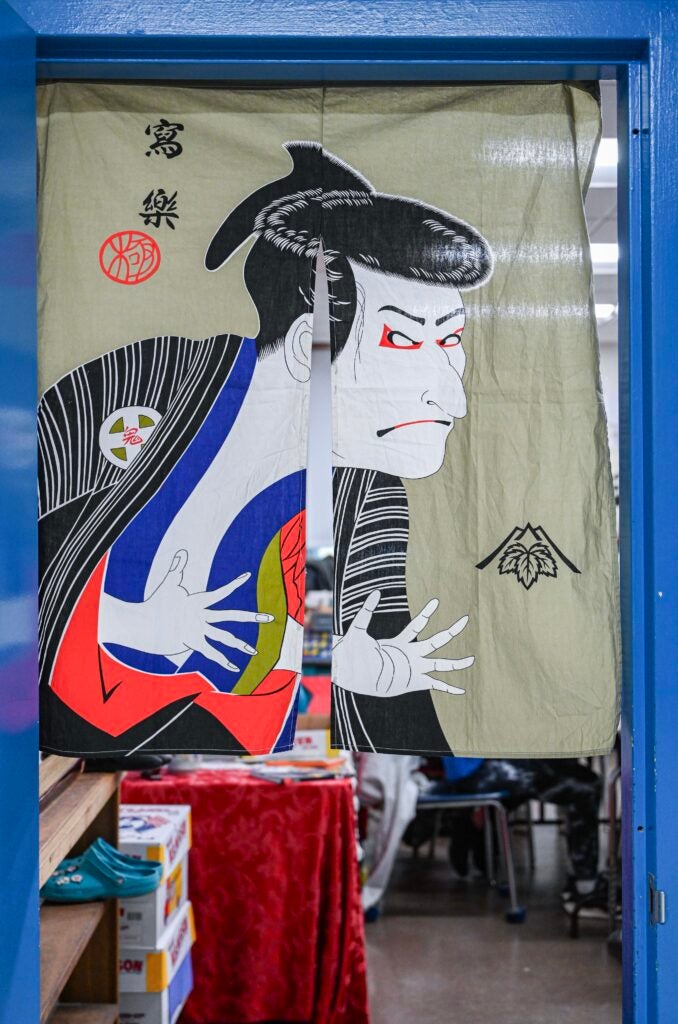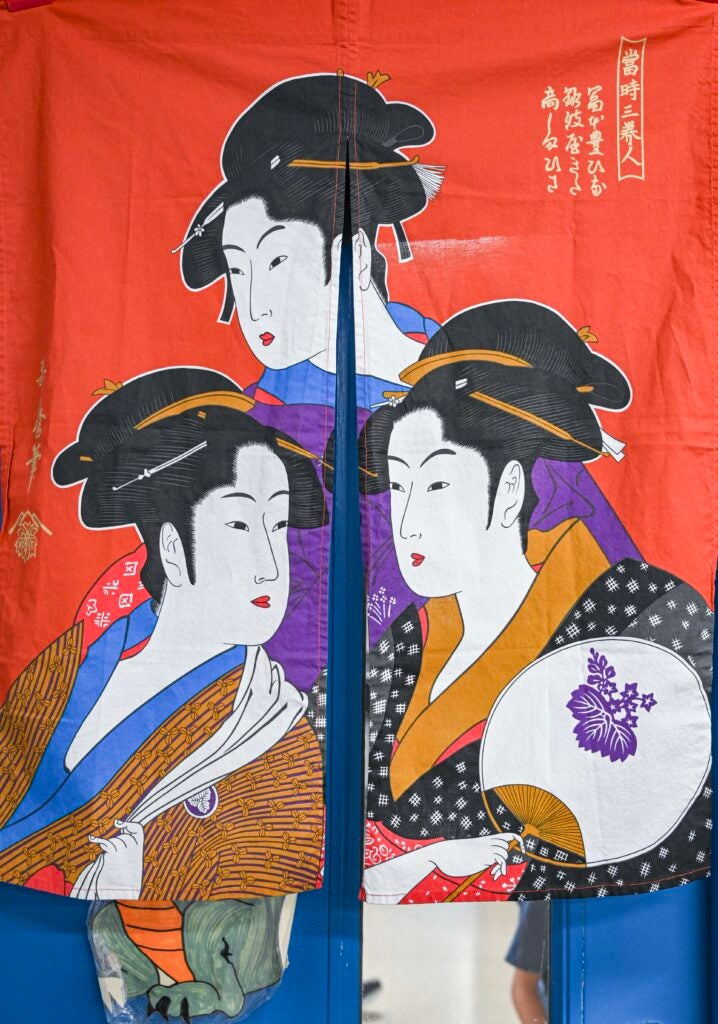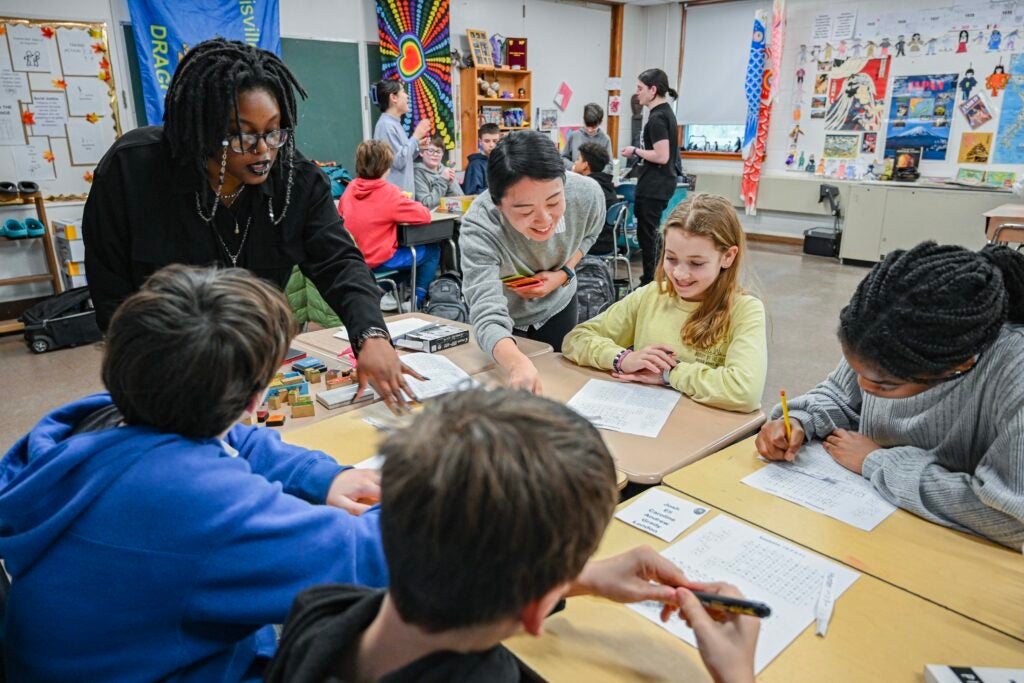
KINGSTON, R.I. – March 1, 2024 – Not so long ago, Davisville, 10 miles away from the University of Rhode Island, was the starting point for expeditions that circled the world, as a historic naval base in Rhode Island.
In February, the community returned to its roots as a global launchpad, with help from some URI students, stepping into a new role for a day.
Students in the URI class JPN302 (Pre-Advanced Japanese) took their learning and enthusiasm for the language to Davisville Middle School in North Kingstown, for the second year of a partnership started by senior Japanese major Mya MacNeil ’25. Davisville students are starting on a “Silk Road” journey in their seventh grade social studies class.
The visit builds on connections between the two schools and URI’s growing role as a leader in Japanese language instruction in Rhode Island. Only a handful of colleges in the state offer Japanese.
For MacNeil, starting the partnership was a way of thanking the teacher who first piqued her interest in Japanese, ultimately leading her to URI and a major in the language. MacNeil was a student in Sandra Makielski’s classroom at Davisville Middle when she first learned about Japanese culture. She recalls that Makielski took students on a trip to New York City to listen to a seminar between Masahiro Sasaki, a survivor of the World War II bombing of Hiroshima, and President Truman’s grandson, Harry S. Truman.
“They talked about mutual compassion and understanding between cultures and the critical role it plays,” MacNeil recalls. “It was a transformative experience for me.”
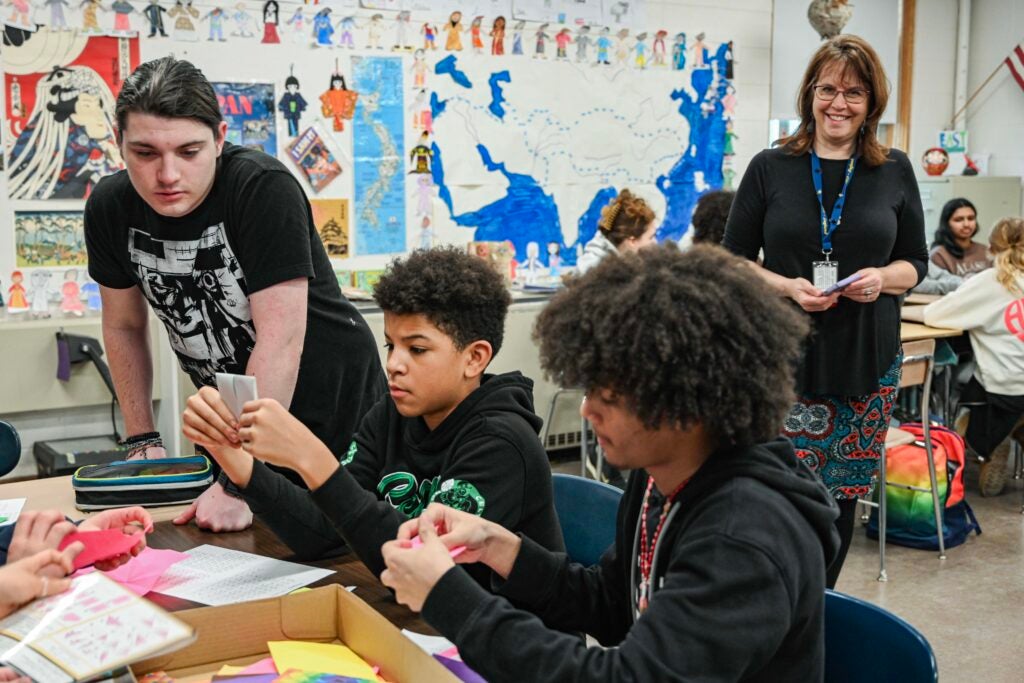
After studying the language at URI and in Japan, MacNeil says she has found a greater appreciation for Japanese culture, and the world.
“Learning a new language and experiencing a different culture makes you more open-minded about differences,” she says. After MacNeil graduates, she hopes to bring that mindset to a career in diplomacy between the two countries, using her language skills to continue to make global connections for peace.
MacNeil’s first instructor in Japanese at URI was Assistant Teaching Professor Nahoko Collis, who says that even if students don’t get to Japan to study abroad, taking a class in the language still gives them the experience of Japanese culture and philosophy.
“It’s great to witness my students’ progress and the confidence and the life experience they are getting by putting themselves out there,” Collis says. “All students benefit from language study, whether they go overseas or not. Any language study can connect to your life, where you live now. Studying a language expands your mind.”
Japanese study rising in the U.S.
Japanese is now the fourth most studied language in the U.S. and Daniel Carpenter, department chair of Modern and Classical Languages and Literatures, says that Japanese is URI’s fastest growing language program. URI’s Japanese program resides in the University’s Global Language and Area Studies (GLAS), and has contributed to the bulk of its growth in recent years.
“All of the meteoric growth in GLAS has been in Japanese studies,” Carpenter says, noting the department envisions a stand-alone program within the next few years.
Collis sees support at URI for languages, including programs like the International Engineering Program, which includes a track in Japanese, and says that students have also shown interest in studying Japanese as a minor.
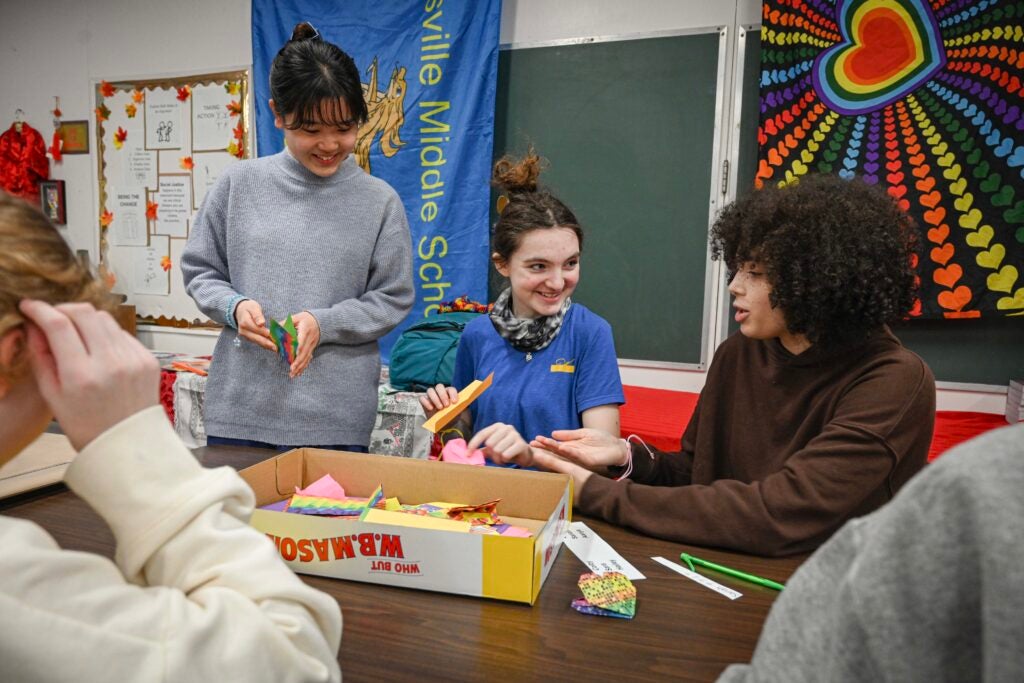
Sensei for a day
Before visiting Davisville, Collis’ class played quiz-style games to prepare and spent time talking about why they’d like to visit Japan. Collis encouraged concrete examples — getting to sample the nightlife is one reason given — and classmates encouraged one another. There’s a visible sense of camaraderie in her Swan Hall classroom, and a feeling of well-earned pride as these students tackle a challenging language.
“It’s difficult, but a good challenge,” says Emily Stewart, a civil engineering major from Providence. She studied Japanese at Classical High School and says that URI has given her expanded opportunities to speak the language.
At Davisville MS, Stewart and her fellow student teachers tailor their lesson to seventh-grade levels with fun discussions and hands-on activities. The middle school students are excited and attentive.
Exploring commonality is one way to open discussion with the seventh graders. What do you know of Kyoto? Have you heard of Shohei Ohtani? The baseball fans’ ears perk up. Students learn how to write their names in Japanese and get a primer in words borrowed from English, such as Interneto.
At one table, URI junior Devin Hunsberger, who graduated from the middle school, is helping students learn new phrases in Japanese; it’s his second time helping in this program. The computer science and Japanese major is studying robotics at URI and hopes his Japanese skills will help him in the future. The U.S. and Japan are leaders in ocean research/underwater robotics, with frequent overlaps in research, he says.
An American classroom is more active than what she normally sees in Japan, says Mikiko Koike at the origami table, an exchange student who recently arrived from Niigata University. An education major, she’s at URI to learn about elementary school teaching in the United States.
A 2023 National Geographic Grosvenor Teacher Fellow, Makielski teaches her Davisville students that a global mindset can boost anything they do in their futures. She’s a living example, and has also sailed on URI’s Endeavor, as a Rhode Island Teachers at Sea participant.
Makielski says that hosting URI brings invaluable cross-connections for her students.
“Devin was in this room 182 days, just like you,” she tells her class. “Now he’s here teaching and learning Japanese at the University of Rhode Island.”
“As we traverse the world, we’re experiencing cultures and meeting people,” says Makielski. “When these students meet someone from another country someday, they won’t question a different accent. These experiences provide something new; they learn how to relate and connect to people who look or speak differently from them.”
Jack Russo, a URI junior in the International Engineering Program, signed up for the Davisville visit to practice Japanese and engage more in the local community. His study of Japanese is preparing him for a year abroad where he will be immersed in Japanese culture when he heads overseas.
He feels ready.
“Collis sensei trains us in versatile, functional grammar tools and reminds me how important my language abilities will prove to be in my future,” he says.
Learn more about URI’s Japanese learning community at URI Japanese Community.

